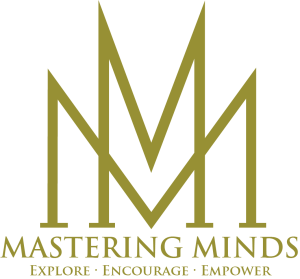We are digging up research, at Growing Leaders, on students born since 2000, the ones researchers are calling Generation Z, or the Centennials or the Homelanders. They’ve grown up in a world of complexity, uncertainty and plurality.
What are three words that describe them today?
- They are overwhelmed.
More information and content is being consumed by students today than in any past generation, including Millennials. While the options are wonderful, it leaves them overwhelmed. They experience FOMO (Fear of Missing Out) but that leads to an emotional weight that humans, especially teenagers, were not meant to carry.
- They are overcommitted.
So many activities make up their daily schedule, both curricular and extra-curricular and this means their mental filter is robust. Their attention spans are short (six seconds) because their filters are strong. Their commitments are really more like involvements because they like to keep their options open.
- They are over-connected.
If you thought Millennials were attached to technology, multi-tasking on two screens at a time, younger kids are even more so, multi-tasking on an average of five screens. They spend majority of their waking hours peering into a screen—on a tablet, video game or phone. This has affected the very wiring of their brains and how they process.
It’s enough to make a kid fear for their future.
Four Fears They Acknowledge

photo credit: student_ipad_school – 226 via photopin (license)
A survey from global branding company, Universum, tapped into close to 50,000 minds of Gen Z-ers across 46 countries to get an idea of what they think about their future careers, their expectations and fears. According to Universum, Generation Z disclosed four big fears about their future. In addition, we are hosting focus groups of middle school and high school students and hearing these same fears in those conversations as well. Here are four fears they revealed:
- I won’t get a job that matches my personality.
These teens have heard their older siblings complain about not liking their job, or being forced to have a job that is “beneath them.” Those Millennials are the highest demographic that is underemployed in America—which scares Generation Z greatly.
Question: How can we ensure we enlist them in jobs that leverage their strengths?
- There won’t be a chance to be developed on the job.
Because Generation Z values change and the re-invention of themselves, they quietly fear they will get a job where they must perpetuate a routine over and over again, and never really grow. They’re afraid no one will invest in them or mentor them.
Question: Could we initiate a developmental relationship with a teen?
- I will under-perform on my job.
Generation Z has heard too many “war stories” about Millennials failing at adulthood. They’ve heard employers, coaches and journalists mourn the “stalled” or the lingering adolescence and they now fear they won’t measure up either.
Question: Can we prepare them now, before they launch their career?
- I will get stuck in a job that I can’t change.
Too much about older generations is unappealing because it all appears boring. They see parents “settling” for a job, not a passion, and they can’t imagine working in the same place for a decade. They’re part of the “gig” economy that plans to change jobs several times over the course of their life.
Question: Can we offer projects that enable them to make changes to their routine?
These fears have prodded Generation Z to ready themselves for a career in a different manner than the Millennial Generation. They are mixing and matching post-secondary learning experiences, with on-line courses, internships, projects. In fact, Udacity has launched “Micro-Degrees” where a company enlists a young worker for a job they express an interest in, then arranges courses to prepare them. They give “badges” for progress and the company pays for half of their coursework if it’s necessary. Everyone wins: The graduate is ready and the company finds inexpensive help.
I believe we must prepare ourselves to try innovative ways to equip the youngest generation for their career. Are you ready to meet their fears?

Source: Tim Elmore On Leading






Leave Your Reply